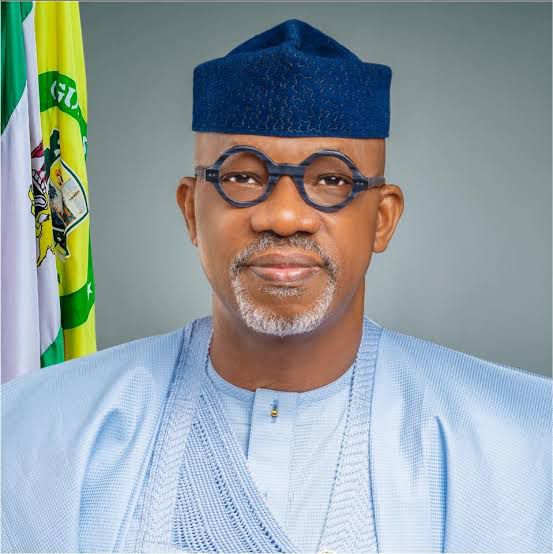Festus Keyamo: Rescuing Nigeria’s Aviation Sector From The Brink of Collapse

When Festus Keyamo SAN CON FCIarb (UK) assumed office as Nigeria’s Minister of Aviation and Aerospace Development at the end of August 2023, the aviation sector was in disarray.
For many, it seemed as though there was nowhere to go—policy stagnation, crippled infrastructure, and a sense of hopelessness permeated the industry.
Yet, against this backdrop of despair, Keyamo took the reins and has since demonstrated that with determination, strategic thinking, and collaboration, even the most entrenched problems can be tackled.
One of the first major actions taken by Keyamo was halting the controversial national carrier project, which had been tied to the Ethiopian government.
While the concept of a national carrier resonated with him and many Nigerians, Keyamo recognized that the project, in its proposed form, would do more harm than good.
He boldly declared that Nigeria’s aviation sector should not be enslaved by foreign interests. Instead, his vision was clear: empower local operators and push for homegrown solutions. His approach marked the beginning of a new era, where the focus shifted from foreign dependence to national self-sufficiency.
One of the most pressing challenges Keyamo inherited was the stalled construction of the Abuja second runway. Imagine the capital city of Africa’s most populous nation operating on a single runway! This critical project had been caught in a deadlock for months, with no solution in sight.
Though, with his counterpart in the Federal Capital Territory office, the Minister approached the issue with his signature blend of pragmatism and diplomacy. He intervened directly, engaging with the Jiwa community in Abuja, whose land disputes had been a primary roadblock. Through open dialogue and strategic negotiations, Keyamo brokered a deal that allowed for the resumption of the runway’s construction. His ability to resolve a long-standing issue in such a short period spoke volumes about his hands-on leadership.
Lagos, the nation’s commercial hub, had also been facing severe aviation setbacks, with Runway 18R being shut down for nearly two years.
Keyamo wasted no time in addressing this critical infrastructure failure, rallying his team and mobilizing the necessary resources to tackle the problem head-on. His efforts have since brought hope to an aviation community that had all but given up on a timely resolution to the Lagos runway debacle.
Beyond infrastructure, the most daunting challenge facing Nigerian airline operators was their inability to access dry leasing options.
Many airlines had been forced into wet-leasing arrangements, a stop-gap solution that was unsustainable in the long term.
Recognizing the need to rectify this issue, Keyamo led a high-level delegation to Airbus headquarters in France, where he engaged directly with top officials, in company of Nigerian airline CEOs.
The talks revealed that Nigeria’s exclusion from dry leasing arrangements stemmed from the country’s failure to fully comply with the Cape Town Convention on International Interests in Mobile Equipment.
Keyamo, leveraging his legal expertise, immediately set about resolving this. He worked closely with the Attorney General, the Chief Judge of the High Court, and other legal heavyweights to address the legislative and judicial bottlenecks hindering Nigeria’s compliance.
His efforts culminated in the signing of the Cape Town Convention, a landmark achievement overseen by Vice President Kashim Shettima. This move not only restored Nigeria’s standing within the global aviation community but also opened the door for Nigerian airlines to secure dry leases, positioning the country for growth and improved service delivery.
Flight delays and passenger complaints have long been the bane of Nigerian air travelers. Keyamo tackled this issue by presiding over the launch of the Consumer Protection Portal, an initiative spearheaded by the Nigerian Civil Aviation Authority (NCAA).
This new platform aims to simplify the process for passengers to lodge complaints, while also monitoring airline performance and ensuring greater accountability. Keyamo’s push for this reform is indicative of his broader commitment to improving the overall passenger experience and ensuring that airlines prioritize consumer welfare.
Keyamo’s impact on Nigeria’s aviation sector extends beyond quick fixes. His broader vision includes policy reforms and infrastructural development that will take time to fully bear fruit but are already laying the groundwork for sustainable progress.
With a meticulous approach to governance and an unwavering dedication to improving Nigeria’s global aviation standing, Keyamo has demonstrated that even the most complex challenges can be overcome with the right strategy and leadership.
Though his appointment initially drew criticism from certain ‘aviation experts’, who questioned the suitability of a legal professional in a field dominated by technical expertise, Keyamo has consistently proven his detractors wrong. His career, which has been defined by a string of successes across multiple fields, is once again on course to leave a lasting legacy in aviation.
By the time Keyamo’s tenure as Minister of Aviation and Aerospace Development concludes, Nigeria’s aviation sector is poised to emerge stronger, more resilient, and more competitive on the global stage. The industry will bear the imprint of a man who, when the chips were down, had the courage and vision to turn the tide. His journey is far from over, but one thing is certain: the Nigerian aviation industry will never be the same again.
Onajite Usman Writes from Ubiaja, Edo State












